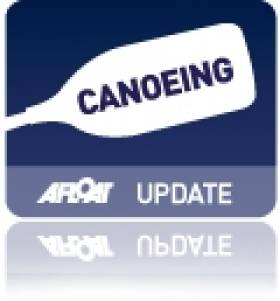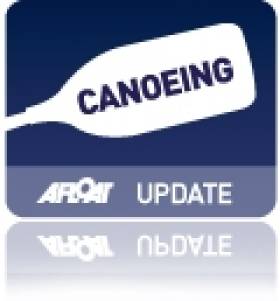Displaying items by tag: Augsburg,
Craig Books Her Place in Canoe Slalom at London 2012
#CANOEING: Hannah Craig is set to represent Ireland at the Olympic Games in London in the K1 racing kayak. The Antrim woman finished 25th at the European Canoe Slalom Championships in Augsburg today, the highest position occupied by a boat from a country not already qualified. Elise Chabbey of Switzerland took the second place on offer by finishing 32nd.
Canoe Slalom European Championships, Augsburg, Day Two
Women
K1 (racing kayak) Heats (1st and 2nd runs): 1 Germany (J Schornberg) 99.26 seconds (2nd run); 25 Ireland (H Craig) 105.69 (2nd run); 32 Switzerland (E Chabbey) 109.32 (2nd run) 47 Ireland (H Barnes) 112.14 (1st run); 40 Ireland (A Conlon) 120.18 (1st run).
#CANOEING: Ireland’s Eoin Rheinisch and Ciaran Heurteau will be in the hunt for an Olympic place in tomorrow’s semi-finals of the K1 canoe slalom at the European Championships in Augsburg in Germany. Rheinisch finished 17th and Heurteau 23rd in the heats on Thursday. The top two boats from countries which have not already qualified will book their places for London. Croatia (8th) and Slovakia (12th) had boats ahead of Ireland in the heats. The heat times will not count in tomorrow’s semis.
Rheinisch and Heurteau combined with Patrick Hynes to place Ireland 10th in the semi-final of the team event.
Ireland’s three women competitors go into action today.
European Canoe Slalom Championships, Augsburg, Germany
Day One (Selected Results)
Men, K1 Heats (1st and 2nd runs): 1 Germany (P Boecklemann) 88.10 (first run); 8 Croatia (D Mulic) 91.4 (second run); 12 Slovakia (M Halcin) 92.09 (second run); 17 Ireland (E Rheinisch) 92.93 (second run); 23 Ireland (C Heurteau) 93.78 (first run); 60 Ireland (P Hynes) 106.99 (first run).
K1 Team – Semi-Final: 1 France 100.19; 10 Ireland (E Rheinisch, C Heurteau, P Hynes) 108.2.

























































